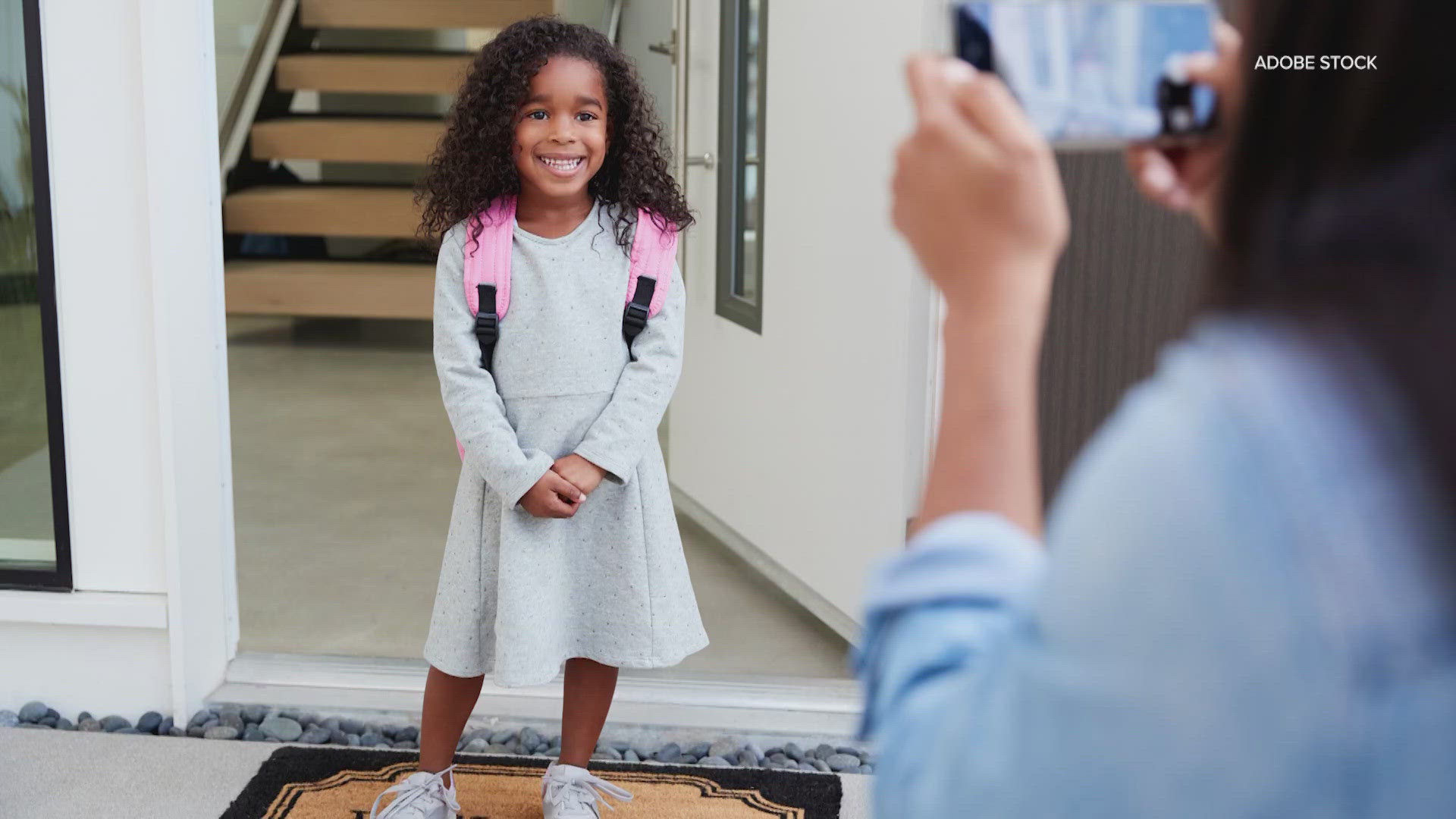PORTLAND, Maine — You've probably seen the pictures on your social media feeds of children holding a sign or plaque with their name, their grade, what school they go to, and more.
Callahan Walsh, the executive director of the National Center for Missing and Exploited Children, said the first step for parents is to lock down their profiles.
"We always recommend parents to make sure that your profiles are set to private," Walsh said. "Make sure that only your friends and your family members, people that you trust, have access to these photos of your children."
Walsh said generic information like a child's name and age should be generally safe, but posting where they go to school and what activities they are involved in could lead a predator to where your children spend their time.
"Some of these things parents really need to take a second thought before posting either on social media or even as simple as a bumper sticker," Walsh said.
Walsh also said parents should ask their kids for their consent before ever posting online.
"Children are now going to have to grow up with this very long digital breadcrumb trail of their entire existence. Is that something, as an adult, when they do become an adult, they really want out there as well, too?" Walsh said.
Walsh also urged parents to have open and honest conversations with their kids about sexually explicit material, such as nude photos. He said parents need to let kids know they will not be in trouble if that material ends up online.
"It's important for them to know that someone has actually manipulated them, and they are the victim," Walsh said. "For a very long time, we all said once that image is out there, it's never coming down. There's no way to get it off the internet. Well, that's changing with the Take it Down tool."
The fix? NCMEC has a tool called "Take It Down."
It is a free service that can help you remove or stop the online sharing of nude, partially nude, or sexually explicit images or videos taken of you when you were under 18 years old. You can remain anonymous while using the service and you won’t have to send your images or videos to anyone.
Take It Down will work on public or unencrypted online platforms that have agreed to participate. The tool works by assigning a unique digital fingerprint, called a hash value, to nude, partially nude, or sexually explicit images or videos of people under the age of 18. Online platforms can use hash values to detect these images or videos on their services and remove this content. This all happens without the image or video ever leaving your device or anyone viewing it. Only the hash value will be provided to NCMEC.
Hash values cannot be used to recreate the image. NCMEC staff said the center received more than 48,000 submissions to Take It Down in 2023, including more than 89,000 hashes. For program to date, which was launched Dec. 28, 2022, staff have received reports 97,447 submitted and 187,973 hashes submitted.
Walsh also urged parents to know what apps their kids are using and which country they are based in. U.S. companies like Facebook, Instagram, and Snapchat have to follow American regulations. Other countries have different rules. This came to light after French authorities arrested the CEO of Telegram, an app that allows for one-on-one conversations, group chats and large “channels” that let people broadcast messages to subscribers.
"It is a wild, wild west out there online, and these social media companies and platforms are popping up every single day. There's a new platform with the new tool and a new way to communicate," Walsh said.
"Telegram doesn’t report to NCMEC and doesn’t have a legal obligation to (since they are not a U.S. provider). NCMEC has tried to get them to report, but they have no interest and are known for not wanting to work with LEA or anyone in this space," a NCMEC spokesperson wrote in a statement.
On Wednesday, Aug. 28, the NCMEC and U.S. Attorney's Office in Maine are hosting a chat on X, formerly known as Twitter, help educate parents and guardians.
The NCMEC also sent this reminder to parents before the start of the new school year:
Internet safety should be part of every back-to-school routine as more children use the internet and smart devices to complete schoolwork and socialize. If you have a child in your life who will be in middle or high school this year, we offer several useful resources to help teach them how to be safer online and become more aware of potential risks and red flags.
Children should know that it's always OK to ask for help from a trusted adult. You can report inappropriate online interactions to CyberTipline.org.

